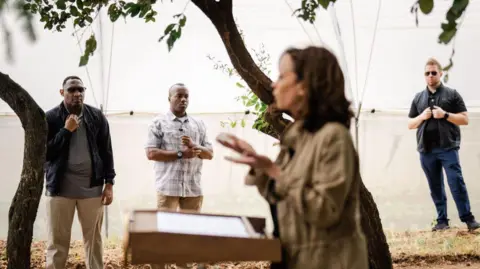By law, the US Secret Service provides former vice-presidents and their families six months of protection after their terms end. That term, however, can be extended, which former President Joe Biden reportedly did before leaving office. The move already has caused controversy, with both California Governor Gavin Newsom and Los Angeles Mayor Karen Bass calling it politically motivated.
Why did Biden extend her security?
So far, neither Biden nor Harris have commented on the reasons for extending her security past the mandated six months. CNN reported that Biden extended it for one year with a previously undisclosed directive before leaving office. From a legal perspective, Biden was within his rights to do so. According to a law enacted in 2008, the Secret Service can provide protection to former vice-presidents, their spouses, and any children under the age of 16 after leaving office.
Does Harris face enhanced risks?
Sources familiar with the current situation have told CBS that a recent threat assessment did not uncover anything alarming to warrant extending Harris' security arrangements. However, some in Harris' team reportedly worried that as the first woman and person of colour to serve as vice-president and as a candidate in a contentious election, she faced additional threats.
Is this political retribution from Trump?
After the removal of Harris' detail was announced, some of her allies and Trump's political detractors immediately characterised the move as politically motivated by the president. Trump already removed Secret Service protection for former allies and foes alike, prompting discussions about potential abuses of power.
Are the rules different for former presidents?
Unlike past vice-presidents, those who served as president have security for life, unless they choose not to. In 2013, Congress restored lifetime protection for presidents. Only one president, Richard Nixon, is known to have chosen to forego such security.




















